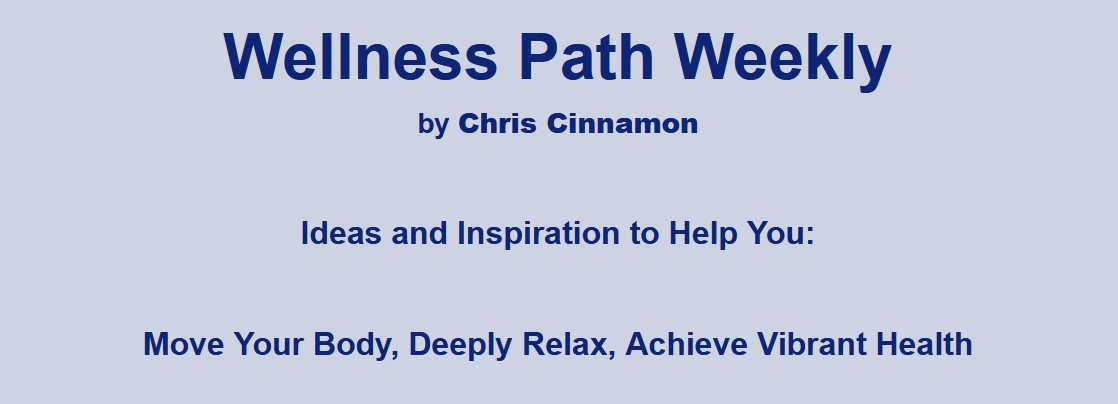
24 November 2022
Gratitude and Your Health
Today's WPW focuses on the health benefits of gratitude.
Here in the US, it's the Thanksgiving Holiday. The day includes parades, football games, and parties. Many gather with family and friends and enjoy (or endure) a feast. Some take it easy, rest, and relax. Some ignore it.
However you observe this day, wherever you are, I encourage you to include the emotion of gratitude in your day.
At the end of the email, I describe a short practice, "Calling Up Gratitude," that may help you.
Why do I encourage you to add gratitude to your day?
At least 2 reasons.
#1 Gratitude is Good for Your Health
Science suggests feeling gratitude may deliver powerful health benefits.
According to the Mayo Clinic:
"Expressing gratitude is associated with a host of mental and physical benefits. Studies have shown that feeling thankful can improve sleep, mood, and immunity. Gratitude can also decrease depression, anxiety, difficulties with chronic pain and risk of disease."
Ponder that for a moment.
All of those potential health benefits from feeling an emotion. No prescription required!
For more on gratitude from the Mayo Clinic, click here.
#2 Gratitude Feels Good
On the range of human emotions, I think of gratitude as a "high frequency emotion." Right up there with love and compassion.
For me, gratitude is a heart-centered emotion. I feel it in the center of my chest. As it gets stronger, the feeling radiates outward, like a warm, soothing light.
When my mood is low or I feel tossed about by the turbulence of the human condition, I "call up gratitude."
Invariably, my mood lifts. My thoughts and emotions feel more smooth. The problems of the moment seem less heavy.
In short, when I call up gratitude, I feel better.
After I lead meditations involving calling up gratitude, most folks report feeling better too.
I suggest you give it a try. Here's a quick Calling Up Gratitude practice.
Quick Practice: Calling Up Gratitude
1. Sit
Find a quiet place if you can. Sit comfortably. Close your eyes.
2. Breathe
Turn your attention to your breath. Feel the air come in as you inhale. Feel your lungs expand. Feel the air go out as you exhale. Feel your lungs get smaller.
Do this for 4 breaths (or more if you like).
3. Call up gratitude
Activate the emotion of gratitude.
You can bring to mind a relationship, an experience, a possession, a place, for which you feel grateful.
Even something simple. A roof over your head. Food in the fridge. A bed to sleep in.
If you want to stay in the present moment, as you inhale and exhale, feel gratitude for each breath. After all, each one gives you more life.
Whatever activates the emotion of gratitude for you.
4. Feel for sensations in your body associated with gratitude
Use your awareness and explore inside of you for sensations associated with feeling gratitude.
You might feel warmth, a glow, internal light somewhere in your chest. You might feel something different somewhere else in your body.
Just feel what you feel.
Allow your awareness to focus on the sensations of gratitude. Feel them.
5. Continue for 5 or 10 minutes
If you get distracted (we all do), bring your awareness back to your breath, continue to call up gratitude, and feel inside.
6. Conclusion
Slowly open your eyes. Take a minute and evaluate how you feel.
If you feel better, you've found a tool.
You can add "Calling Up Gratitude" as a practice to help you feel better.
To wrap this WPW, I send gratitude your way. Thanks for being you!

Chris Cinnamon, JD, MS
Certified Exercise Physiologist
Head Instructor
Author, Tai Chi for Knee Health